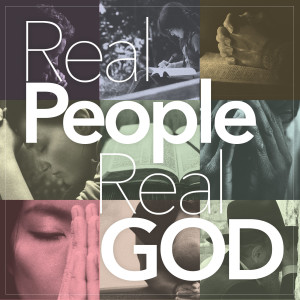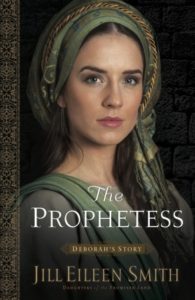

 Please welcome my guest co-host for today, Jill Eileen Smith. She’s a good friend and an expert researcher. Today, we’ll chat primarily about her book, The Prophetess, a biblical novel exploring the life and times of Deborah, Israel’s only female judge.
Please welcome my guest co-host for today, Jill Eileen Smith. She’s a good friend and an expert researcher. Today, we’ll chat primarily about her book, The Prophetess, a biblical novel exploring the life and times of Deborah, Israel’s only female judge.
A Series of Amazing Women
Mesu: You’ve written about several amazing women in the Daughters of the Promised Land series. Which women did you focus on for those novels?
Jill: I started with Rahab (The Crimson Cord), who actually lived during the days of Joshua (before the judges). Deborah (The Prophetess) came next, which is set during a time of terrorism when Israel was still getting their footing in the land of Canaan. The next two books are about Ruth (Redeeming Grace, which releases this coming February 2017) and Hannah (2018 – as yet to be titled.)
Judges in our Scripture Story
Mesu: Before we get into Deborah’s story, let’s talk about Israel’s judges in the context of REAL PEOPLE, REAL GOD.
- How do you see our REAL GOD revealing Himself to and relating to His REAL PEOPLE during this time period?
- How does GOD use the judges to help restore that broken fellowship between Himself and humanity?
Jill: Tough questions, my friend! But the truth is, God is so very patient with His people. He wooed Israel to love Him from Egypt to Canaan and wanted to be the One they turned to, the King they desired. But as most REAL PEOPLE do, when their human leaders were gone (Moses and Joshua had died), Israel floundered. Without a leader, “everyone did what was right in their own eyes.” And “right” was far from what God called good. His REAL PEOPLE ended up following the cultures around them and worshiping their gods, leaving their first Love, the God who had called them His own.
Hard Lessons
Mesu: I love the way you describe God’s “wooing” of Israel. Judges is a really violent book. While immersed in these disturbing stories, it’s sometimes hard to remember WHY God is allowing all the violence to occur. The reminder of God’s wooing takes us back to that Garden relationship–a REAL GOD who adores His REAL PEOPLE and is determined to restore that intimacy. But His determination is hard to watch sometimes.
Jill: Part of the hard lesson in Judges is that God allowed Israel to suffer at the hands of the very people they wanted to emulate. Instead of those cultures embracing the Israelites, they harshly oppressed them until Israel cried out to God for a deliverer. That’s when God would raise up a judge to deliver the people from their oppressors. Some of those judges also led the people back to the Lord, as I believe Deborah did, but many of them were simply military deliverers. Once those men died, the people fell into the same old patterns and walked away from the Lord again.
What’s a Prophetess Anyhow?
Mesu: You believe Deborah was different than many of the judges. We see that difference in the title of your book about Deborah: The Prophetess.
- What does it mean to be a prophetess, and how do WE know Deborah was one?
- In fact, how did DEBORAH know she was one?
Jill: A prophetess is someone who hears from God and gives God’s word to His people. We know she was a prophetess because she prophesied things that came true. She told Barak, Israel’s commander, for instance, that a woman would kill Sisera, something that perhaps Barak himself expected to do. But her prediction came true. Remember the story of Jael in Judges 4?
How Does She Do It?
Mesu: Jael was a brave lady! How do you think Deborah knew those things? How did she hear God speak to her?
Jill: She would have known that she was a prophetess because she would have had visions and dreams. That was how God said He would speak to His prophets since the time of Moses (Numbers 12:6).
Same Title, Same Gifts?
Mesu: Does that mean all judges were also prophets?
Jill: No. There is no mention of Gideon or Samson or Jepthah or the others giving the Word of God to the people. I can’t recall another judge—other than Samuel—also being called a prophet. The others might have been visited by an angel, but it was for military action to lead the people out of oppression.
What Does a Judge Do?
Mesu: It’s apparent that Deborah herself had a relationship with Yahweh. Does Scripture give any clues about the spiritual condition of the Israelites as a nation during her leadership?
Jill: Scripture tells us:
“In those days Israel had no king; everyone did as they saw fit.” Judges 21:25
So no one person rose up as leader to keep them aware of the Law of Moses or encourage them to serve the Lord as Joshua had done. Individual people may have tried to do so, and whole households may have tried to obey, but there was no central consensus of the leaders to follow the Lord as He had commanded. By the time we get to the end of the period of the judges, the priests are so corrupt that God stepped in and judged them, preventing them from causing any more damage.
Job Description
Mesu: What did a judge in Israel actually do? Was Deborah like a traveling evangelist? Did she teach the whole nation about Yahweh?
Jill: People came to Deborah for judgment, and she settled issues according to the Law.
“She held court under the Palm of Deborah between Ramah and Bethel in the hill country of Ephraim, and the Israelites went up to her to have their disputes decided.” Judges 4:5
I don’t think the whole country followed her as the tribes were too spread out. I think they knew of her and of Israel’s commander (Barak), but the times were dangerous and travel would not have been safe. So those who could travel came to her. She taught about Yahweh to those who were near, to those who would listen.
Getting Personal
Mesu: Was Deborah married? Did she have children?
Jill: The Bible only tells us that she had a husband named Lappidoth. She does call herself a mother in Israel, however, and it would have been the norm for her to have children. There is no mention that she was barren, so I suspect she truly was a mother.
A Cultural Oddity
Mesu: Wow! Talk about SuperMom, right? Not too many women in Scripture worked full-time AND raised a family. Why do you think God chose a woman to be a judge during a time when women were so often devalued?
Jill: I’m not sure that women were devalued in Bible times. We tend to think that because the Bible is very patriarchal. And certainly men were placed in roles of leadership in their tribes and families. God held men more responsible than he did women. But God Himself never devalued women. In fact, I believe the Law protected women in many ways.
There were other times in Scripture that God used a woman to rescue His people – Esther comes to mind. I suspect that during this time of Deborah’s life, there just weren’t any men fully devoted to the Lord. Or maybe there were but God wanted to show the men that they weren’t living up to their spiritual duties to lead their families, so He chose a woman to show them how.
Biblical Terrorism
Mesu: When you and I talked about this time period in Israel’s history, you described it as a time when Israel experienced “terrorist attacks” from their enemies. It really helped me identify with these REAL PEOPLE in Judges since we in the U.S. have experienced some terror attacks on our own soil. What do you think we, as a nation, can learn from the Book of Judges?
Jill: In Judges, every time the people of Israel slipped away from the true worship of God to worship of idols, God sent other nations to oppress them. Perhaps that meant attacking their fields so they couldn’t harvest their crops. Other times it meant capturing their women and mistreating them. Whatever the means used, these nations devastated Israel. Sometimes the oppression went on for years and years until Israel finally got the message and cried out to God.
I think sometimes in our stubbornness we fall into a pit of misery and despair (whether outside forces are oppressing us or not) and it can take us a long time to realize that we need to cry out to the Lord for rescue. Every time the Israelites got to that point and cried out to God for rescue, He sent them a deliverer. But sometimes they were slow to realize their need of a savior—kind of like we are today.
Placing Ruth Among the Judges
Mesu: Now, during the time Deborah judged, the Canaanites were Israel’s oppressors. But throughout the Book of Judges, we see lots of nations used by the Lord to discipline Israel when they served pagan gods and turned away from Him: the Midianites, Amalekites, Philistines, Ammonites, and the Moabites.
In Redeeming Grace, your book on Ruth that releases this coming February, you talk specifically about a period of time when the Moabites oppressed Israel. It’s a story many of us are familiar with but might not realize it fits into this period of Judges.
Jill: The book of Ruth tells us that it happened during the time of the judges when there was “a famine in the land.” The trouble is, if you read Judges, you don’t see any particular time of famine mentioned. So we don’t really know if her story fell during the reign of a particular judge. We do know, however, that there was a judge who killed the king of Moab because of the oppression Israel suffered under Moab. This oppression is actually set before Deborah’s story in the book of Judges.
Then we have the timing of genealogy to consider. If we place Ruth’s story during this period of Moabite oppression, it is closer to Rahab’s time and would fit with Boaz being Rahab’s son. If we place it at the end of the book of Judges, we are closer to the time of King David and Ruth is said to be his great grandmother. The problem is we have too many years for them to fit together neatly.
Some suggest that the Jewish people would condense genealogies so that a “begat” is more like an ancestor than necessarily a father. Truth is, we don’t know for sure. I think that God knows how it all fits together and that somehow it will make sense to us one day. In the meantime, I chose the earlier time period because it made more sense to me to set it there. But someone else might have good reasons to place it somewhere else. We aren’t told, so we don’t know for sure.
Ruth’s Role in Scripture’s Story
Mesu: Keeping in mind that we’re trying to grapple with the overall story of Scripture here, how does Ruth’s story move mankind back toward that perfect, transparent, and loving Garden relationship?
Jill: Ruth’s story is one of redemption, a picture of what Jesus did for us when He came to fix what was broken in the Garden. Throughout the whole of Scripture, God has been wooing people to come to Him. Remember Rahab’s story—the prostitute from Jericho? This verse in Isaiah represents her story beautifully…
“Come let us reason together…though your sins are like scarlet, they shall be white as snow.” Isaiah 1:18
Another verse in Isaiah represents Ruth’s story equally well.
“Fear not, I have redeemed you; I have summoned you by name, you are mine.” Isaiah 43:1
Boaz shows a love like Christ’s and Ruth shows us a bride like Christ is looking for. Jesus came to restore, to heal, to bind up the wounds, to free the captives, and Ruth’s story is a picture of keeping that commitment, however flawed it might have been because we humans are not God. God wants relationship with us, and He won’t be satisfied until that Garden relationship is restored.
Deborah’s Role in Scripture’s Story
Mesu: Here’s a harder question…How does Deborah’s story move us forward in the overall story of Scripture?
Jill: Deborah’s story shows us that God commands obedience. We don’t get to have it both ways. We can’t have a loving God without also recognizing that He is also our Judge. Deborah judged her people in the ways of the Law which pointed them (and us) to the need for a savior. God sent His Son to be that Savior but He is also our Judge. If we won’t obey and accept Him as Savior, then we will face Him as Judge. The Bible is pretty clear on that.
Judge and Father
Mesu: I just read in my Bible study on 1 Peter:
“Since you call on a Father who judges each person’s work impartially, live out your time as foreigners here in reverent fear. For you know that it was not with perishable things such as silver or gold that you were redeemed…but with the precious blood of Christ, a lamb without blemish or defect.” 1 Peter 1:17-19
I love those verses because they show our REAL GOD as both righteous Judge AND loving Father.
Thanks so much for chatting with us today, Jill!
Tweet-A-Licious!
- Jill Eileen Smith, talks about Deborah, Israel’s only female judge, on today’s podcast!
- Discover how the Book of Judges fits into the whole story of Scripture?
- Find out more about the story of Ruth during the days of Israel’s Judges from Jill Eileen Smith.
Today’s Questions:
- Does thinking of our REAL GOD as both righteous Judge AND loving Father create in you a feeling of conflict?
- How can you both learn and teach others to move towards a deeper understanding of the many aspects of God’s character?
- How do you see the pieces of God’s character coming together to make up a perfect whole?




Comments 8
Both of you ladies have once again lived out your faith boldly by sharing your work. Your pure love for God is bright. When I read this conversation /interview and your books, I believe you are consistently pointing me back to the Bible to read and study more. My next Bible study is Joshua and Judges with First 5. I’m looking forward to reflecting back on what you have shared here to make my time with God more rich.
Author
Thanks so much, Nichole! You’re a wonderful encouragement. Enjoy your study!
Thank you both for your insights into these women and the time period. I’ll be teaching from Judges in the new year so this has been helpful. I also love both of you as authors. Biblical historical fiction is both what I love to read and write.
Author
Hooray! A fellow Bible geek! Jill and I love to find others who get excited about all those fascinating (at least fascinating to us) little details that make biblical historical fiction so fun to write/read. So glad you get to teach on this time period in the New Year!
So very informative and enjoyable! These discussions make the stories from the Bible like your title, REAL PEOPLE, REAL GOD. Thank you.
Author
So glad you enjoyed it!
When we dig deeper in God’s Word we can’t help but be convicted. We are sinners in need of a Savior. Thank you both for your meticulous research that makes Biblical fiction my favorite genre. Blessings!
Author
And thanks so much for your tender heart that responds so beautifully to the Spirit’s leading, my friend.